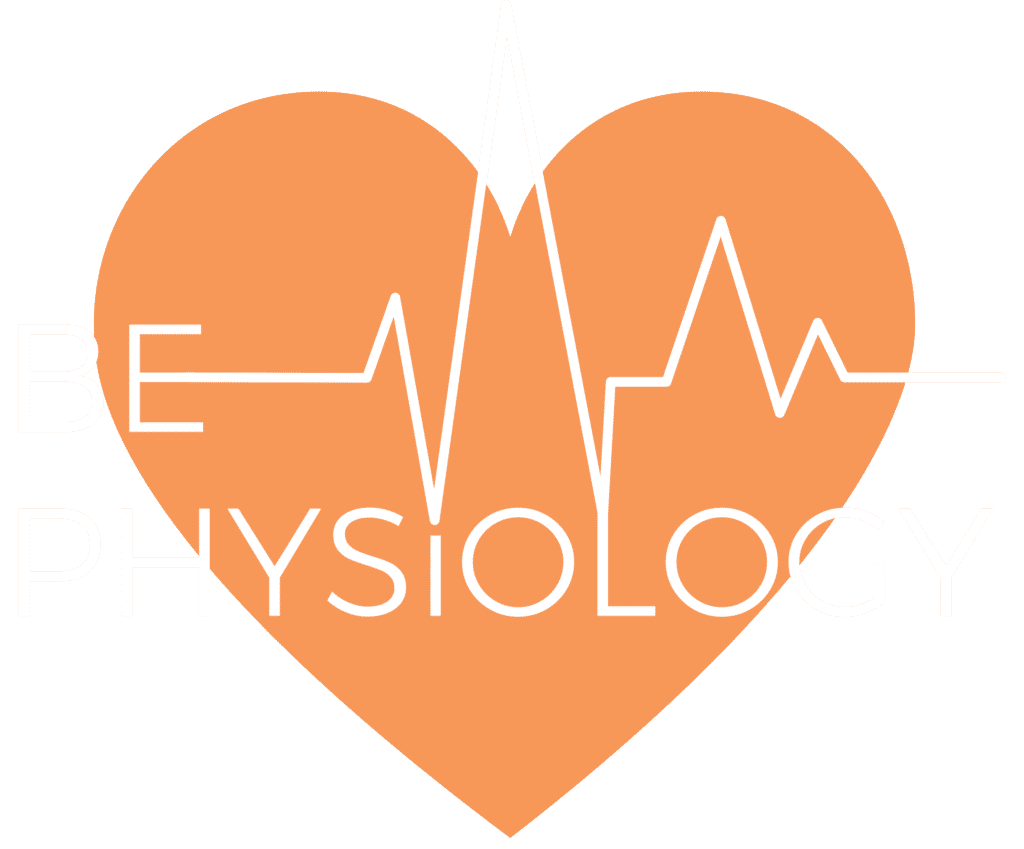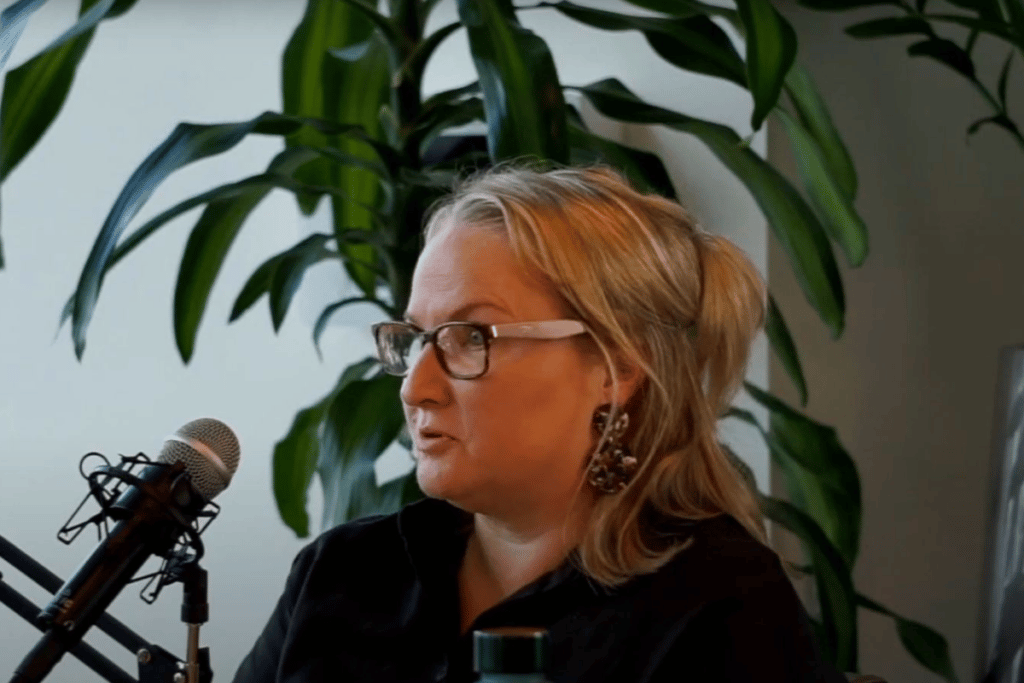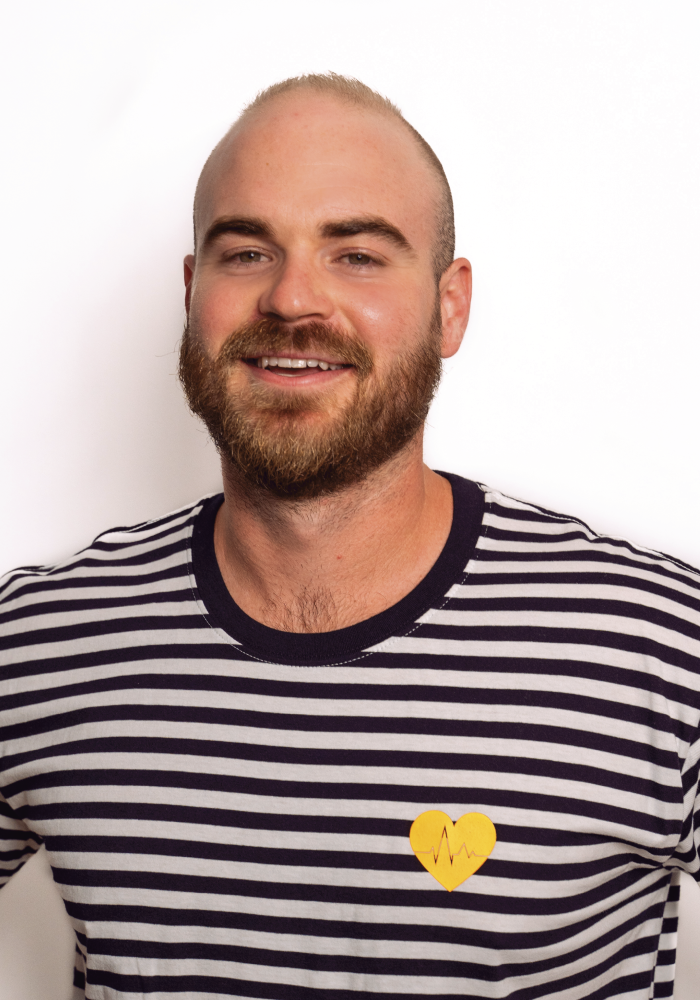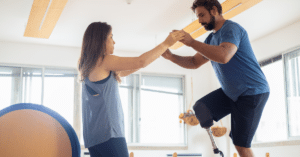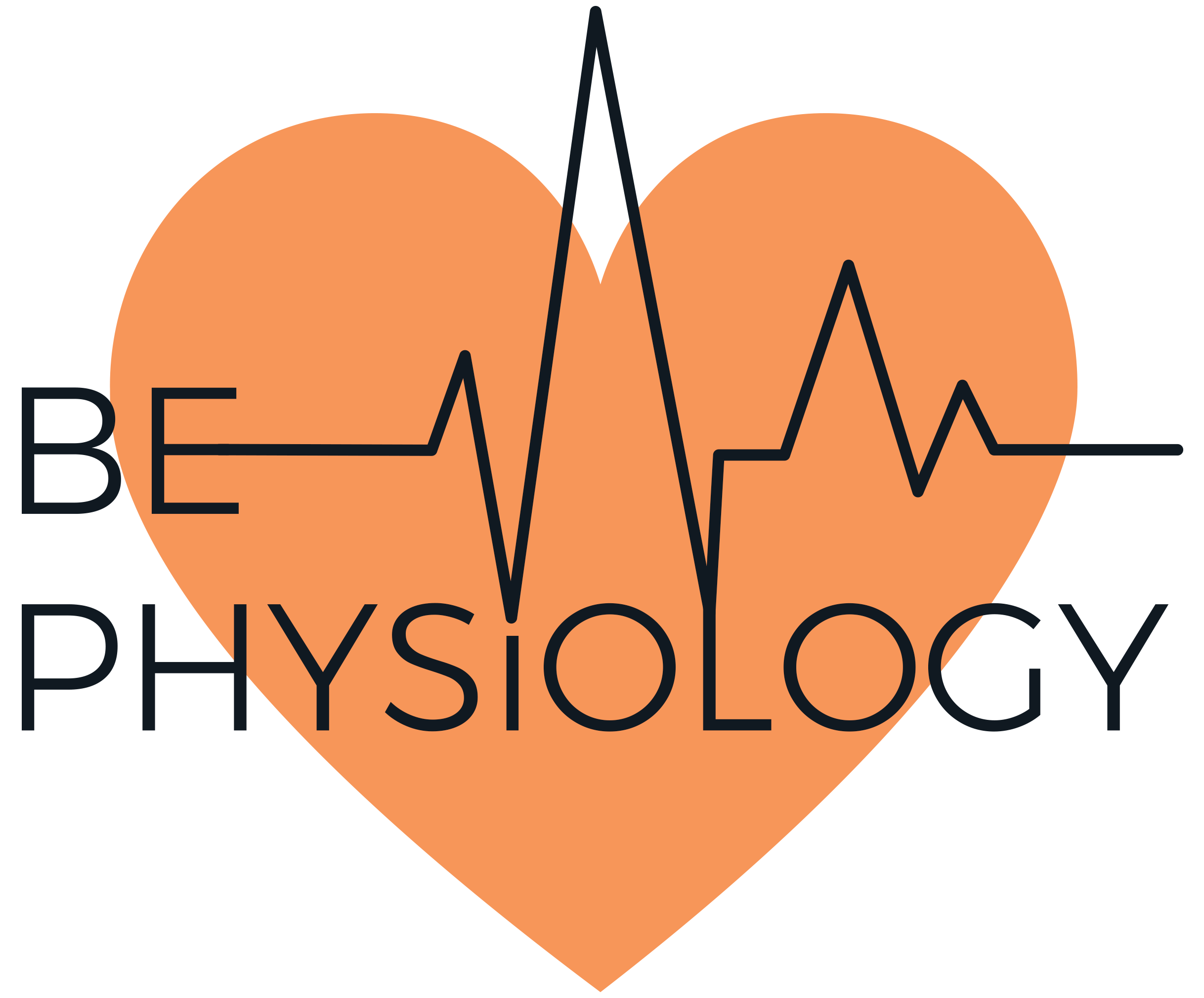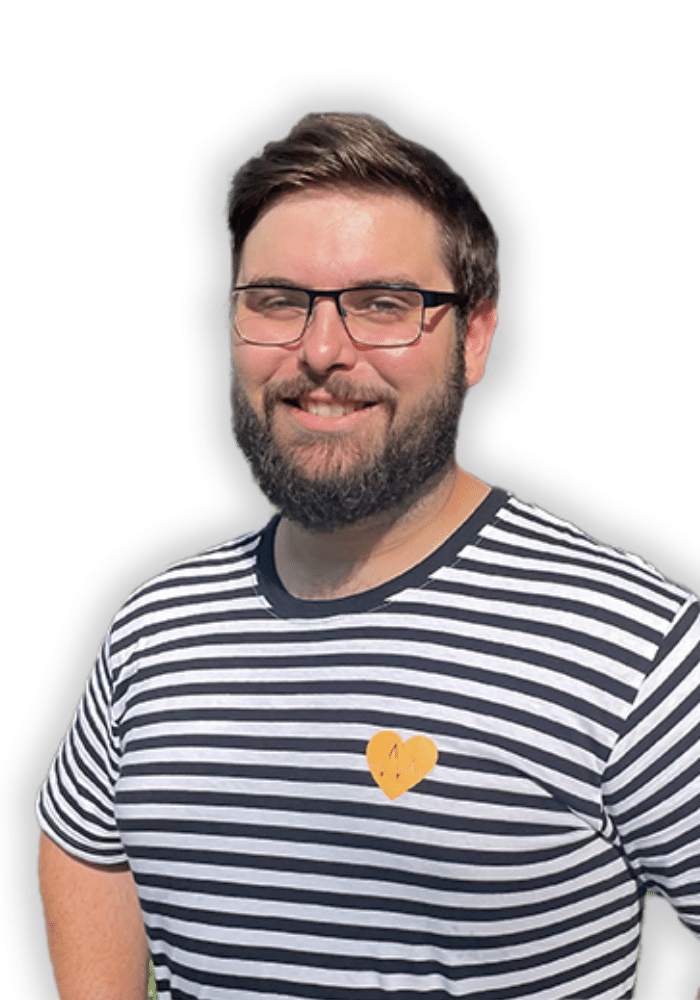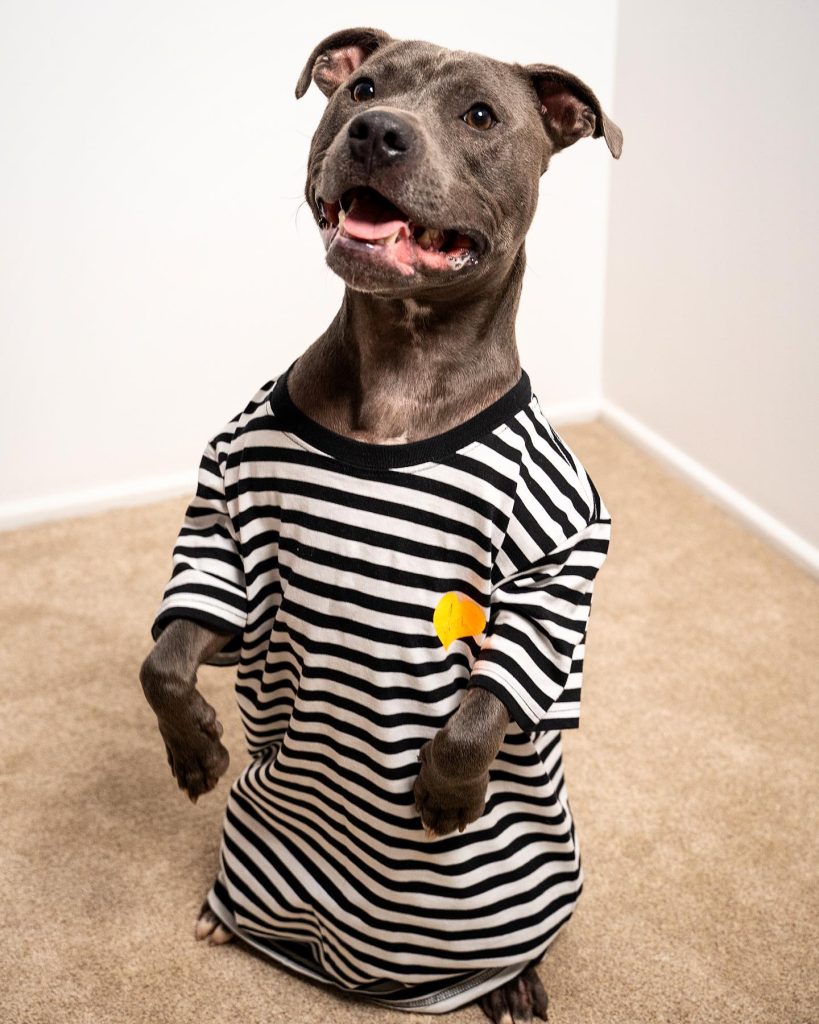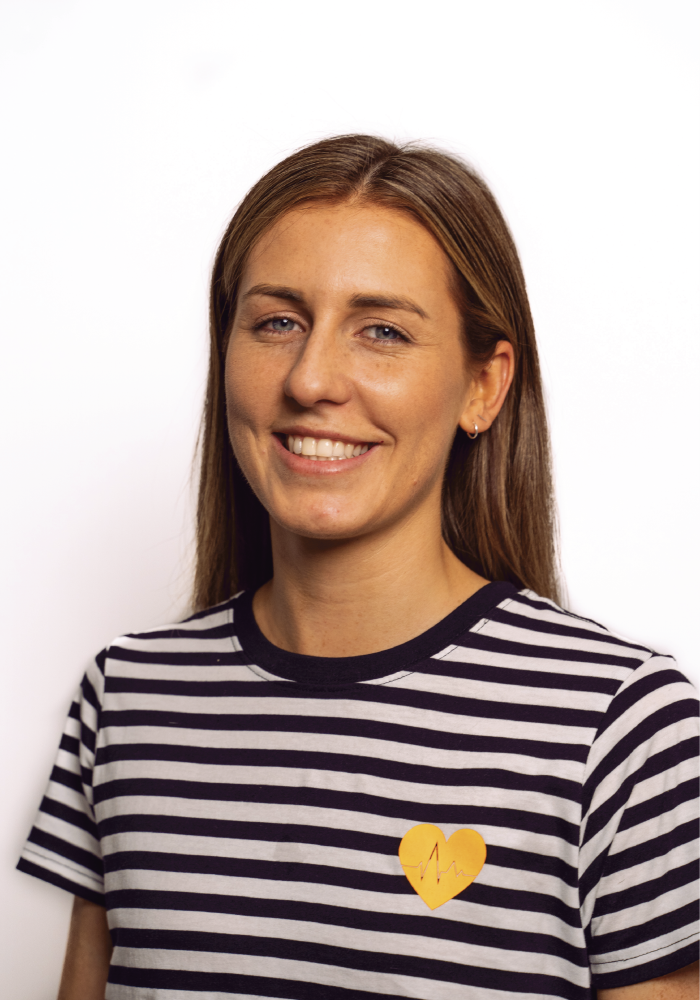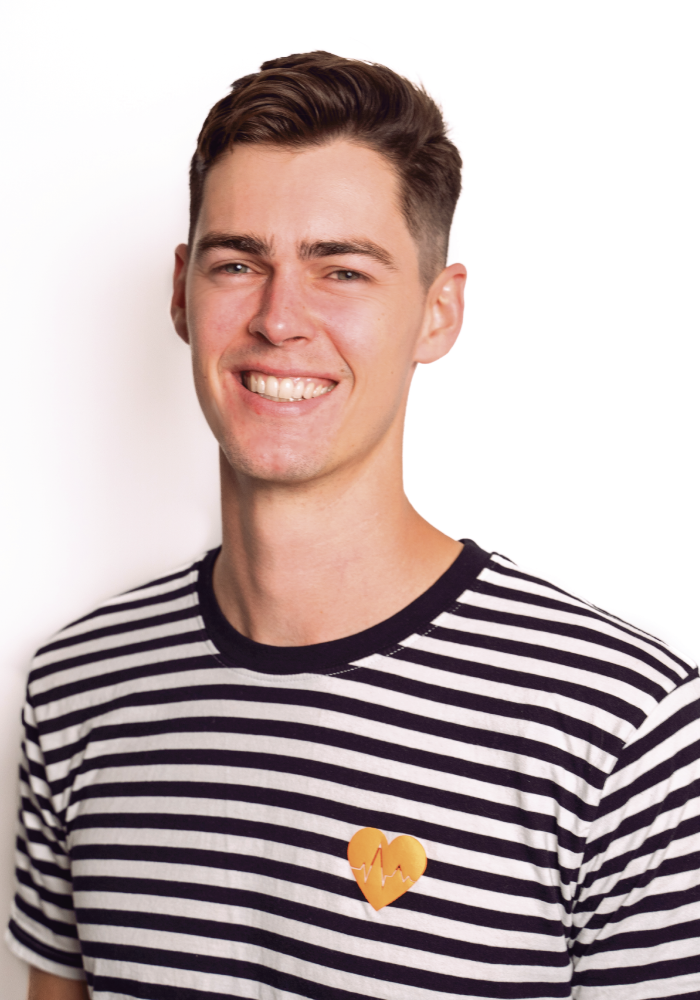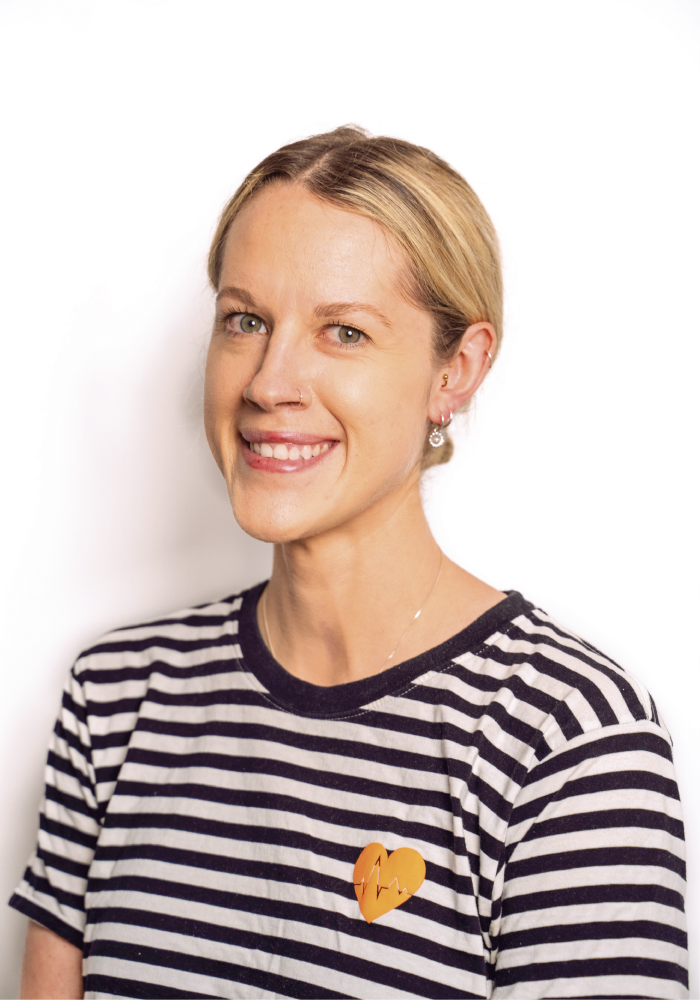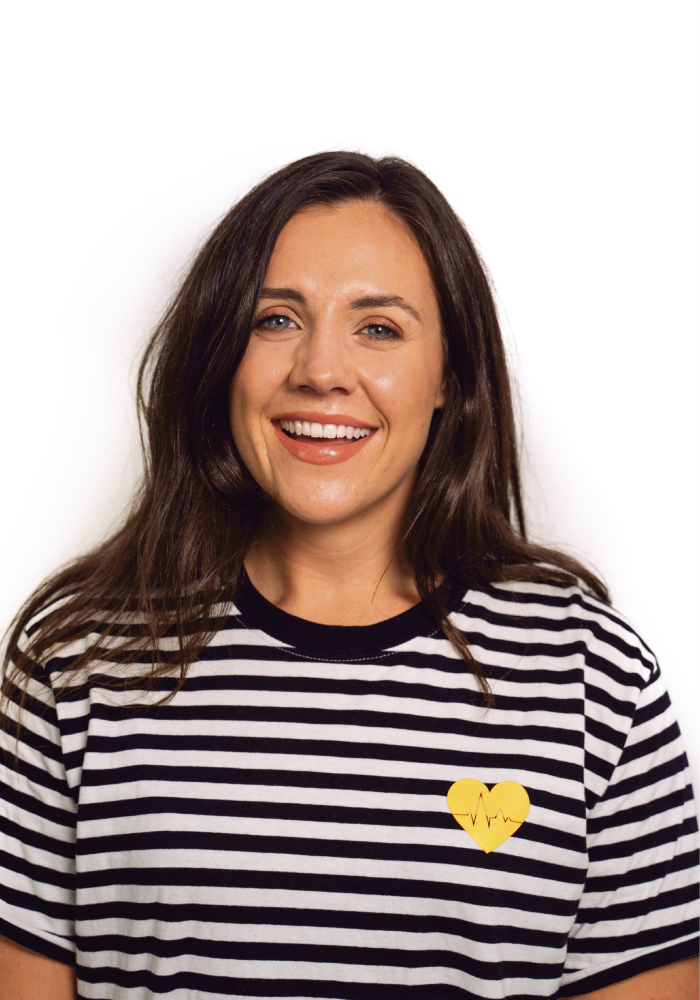Transcript
Hello, and welcome to another episode of the underwear podcast with Be Physiology. So sit back and enjoy the next episode of Be Stories, where we chat with Peita, uh, about her role as an NDIS support coordinator, and also being the parent of a child, living with a disability. Peita, thank you so much for joining us this morning.
We’re going to, we’re going to start off for the same question that we do for everyone that comes in mm-hmm what would the name of your autobiography be? Very tough. First question guys. It is we, uh, hit the ground running. Yes. I’ve gone something simple. Treat others how you would like to be treated. Ah, yeah.
Beautiful. Just a simple one for an approach to life. Yes. Yeah. I must say I went to a Catholic school and uh, I wasn’t raised Christian or anything like that, but went to the school and the only real teaching I took from all the. Religious teachings was treat others or do unto others as you would have.
Yes. And I was having conversation with someone about it this week about that saying, and it’s used, I’m not a religious person either, but, it’s used in all different types of religions. I was talking to someone who’s a, has a masters in theology and she said it comes from all different types of religions, just written in different ways.
So they are talking to each other. I’m still thrown that of, I mean, I’m not overly really decisive either, but, but of all the Bible, like you took one thing, one thing that’s literally the one thing that I, you go that’s that’s your fees done. Yeah, exactly. Thanks, ma thanks dad. You don’t even know about the crucifixion.
What happened. That’s a work. So take us back, uh, to, uh, young Peita, give us a little background of, uh, your story, my story. So. Career-wise. I worked in administration when I left school. Mm-hmm for a large accounting firm and I moved through a few different financial roles, moved out of finance, into operations and policies and procedures, and then worked for a training organization as the, training organization manager.
Oh, nice. And then we had our twins 10 years ago, Levi and Emjay. Mm. EMJAY is why we’re here today. Mm-hmm and, I’m currently in a, business business role for a speech and OT clinic. Beautiful. Yeah. And what led you into that path of, well, actually stuff in the beginning.
Mm. Accounting. I know at the very start. Yes. What drove you away from counting? Oh, well I still love a secret passion for it. Yeah. You still have a secret passion for it. Yeah. Yeah, absolutely. Good. At math just generally. Good at math. How do you call about spreadsheets? Is that your thing?
It just, I think it just evolved. Because when I started my administration role, I was working for a really large, accounting firm. So I think I just was exposed to different types of things and it’s, wasn’t just that black and white maths. I wasn’t particularly amazing at maths in school. It was just, I think it just evolved from there.
So yeah. And how did that interest of accounting evolve into operations and then, uh, onto your specific role now? Again, I think it was. And evolvement, but there’s a lot of, requirements in counting world that, you know, you’ve got to follow certain procedures and processes to do things, to get the outcome.
So I think it was just a natural, thing to move into policies and procedures. And then I moved into that, that current role that I’m in, what really spoke to me about the role was that I had experience to help families, from, from what I’d been experiencing in my personal life. Yeah. So, it was just very much a natural progression.
Yeah. Okay. And, has really given me a lot of, job satisfaction. Yeah. That’s great. Yeah. So it’s a product of your, should I move that mic a little bit or is that fine? There? That’s good then. So it’s a product of your environment then it’s a bit of a nurture. Yeah, absolutely. Yeah. I think it’s just, it’s evolved from a few different things, so, yeah.
Okay. And was this something that, you like were really thinking about at some point, like you started to notice in yourself that you would have these skills and that you would be capable of this role, that isn’t quite where you started and you’re like, oh, maybe i’ll start to gear myself towards there or did it happen more?
I think, I’d left a role. Wasn’t being supportive, of my child with additional needs and lots of families will face that. Mm. And during that time, when I was looking for another role, I wasn’t rushing. But this role popped up. Mm. And, I was like, hang on a minute. This is a mixture of all my skills, but it also brings in, where I’m able to make a difference in people’s lives.
Yeah. So which you guys would, you know, experience every day too. So, yeah, it’s definitely, it’s probably, Exceeded my expectations. I’m on that experience, I suppose. And you start to sort of experience what life is about for others. That’s not normal every day. Yeah. That’s a good way to put it. And can you correct me if I’m wrong?
So as part of your role also being in support coordination as well, like that sort of absolutely one role is this two different roles that you is been melded into one and it is yeah. Support coordinations. Just evolved from cut that out. The current role just as, as, uh, an addition to what I already do for where I work.
So, it’s certainly been a change. But again, a good change where i’m, I’m there to help people and help them in their everyday life. So it sounds like it’ll be a lot to juggle. Because can be mean, we obviously know of other support coordinators and that job on its own can be pretty full line.
Definitely. I think you just have to manage how many people we take on. Yeah. Yes. Taking too many on is not the key to that role. Yes. Because there people that have all sorts of needs, some don’t need a lot and others need a lot of, of help in that first sort of year of having a support coordination included in their plan.
So, yeah. Is that the general theme where like, generally you’ll start seeing somebody and. Somebody will start using your services. And for the first year, it’s pretty heavy in terms of what your role is. And the idea is to tr sort of try and fade back up to the first. Absolutely. Because we’re the same when you think about it.
Like our role is like, we try to be heavier at the beginning and then the idea is to yeah. Scale it back. Totally. But I never thought about that from support coordination. Yeah. So the idea of support coordination is, is not to be there forever. Mm it’s. To set you up to build your capacity, to be able to do the things that I’m teaching them to do and how to understand their plan.
So the idea would be, you know, there’s not a timeframe, but that you would have less and less support coordination needs because you build your capacity to be able to do those things yourself. Yeah. Right. It’s all independence in the end. So we’re all working towards. I know you like numbers, and I’m not going to ask you to gimme a specific number here, but like, what is the general success rate of getting somebody off your services?
Like how is that something that does happen more often than not? Or do you find that people become quite attached to the assistance that you’re able to provide? For, because we’re only in our first year of support coordination, uh, we haven’t had anyone move on yet, but I’m certainly seeing promising sign.
Yes. Cool. So I’ve got some great examples to share that. Yeah. Perfect. Yeah, that, that person is building their independence when they started with me. There’s no way they would’ve even thought that they could’ve done that. So yeah. It’s such an amazing thing. Hearing someone else in a completely different role to ours say exactly the same things.
Yeah. As we say. Yeah, absolutely. Yeah. That is cool. Yeah. So can you explain because it is, it is a. Broad and tricky topic, and it’s hard to understand for a lot of people, but can you explain what a support coordinator does? Yeah, sure. So there’s three levels, of support coordination. So level one, is typically building person’s ability to connect with their community around them, accessing, community and funded supports, and getting the most out of your plan and pursuing your goals.
Mm-hmm , that’s not typically used a lot. And then there’s level two, which is what I do. Mm-hmm , that’s in the coordination of support. So it’s coordinating that person to again, get the most out of their plans and, and work towards achieving their goals, connecting them with providers mm-hmm and connecting them with supports they may need
So if I can cut back in there, why is level one not used all that much because when you, when you give it it’s tardy, you’re like, oh, that sounds yeah. Important. I think, I think because generally, if you’re given support coordination in a new plan, for example, A lot of people have not connected with, with, with providers yet, or they they’re struggling to connect with providers because they dunno where to go.
They don’t know what to do. What do I need? How do I use my plan? So you, you can, I can offer level one as well, but generally you’re going to find that they need all in at the beginning to try and help them do that connection. Gotcha. Hmm. So the levels is essentially like a needs hierarchy. Yeah. The higher the level, the more, yeah.
So level three, is specialist support coordination. So typically, people that need this coordination, are, are quite high needs. They’re complex. They need specialist support. They often will be, you know, one on one care, 24, 7 care as well. And they need to have, a, a, background in mental health, counselling, other qualifications to be able to perform that role or, or a lot of lived experience.
Mm yeah. Okay. Yeah. Because you’ve obviously taken a bit of a side approach to getting into sport coordination or at least with one of your roles, but what is the typical progression of somebody say finishing high school? Is there a degree that people go through to get a support coordination, or is it life experience and just being fit for the role?
Yeah, absolutely. You, you can be taught on the job. Absolutely. If you’ve got someone, you know, great mentor to show you the way. Mm. But I think it also helps to have that lived experience in disability to understand how it works. You’ve got to have a couple years with running plans and having whether it’s a child or a family member or someone you care for, to be in there and start to really understand the thick of it.
Because as we know, it’s so broad, we can all interpret it differently. But there’s things to follow around what, what the guidelines are to how you can use your plan. So you’d say most of the support coordinators you work with have. Uh, lived experience. Absolutely. Yeah. Yeah. So I work with a closely, with a few from, uh, in a level three capacity as well.
So they’ve got, either lived experience with mental health conditions himself. Oh yeah. And are managing those, or they have qualifications in delivering mental health services. Is there almost like an unspoken level of modesty in terms of, if you don’t feel you’ve had that lived experience, that you wouldn’t put yourself forward for a level pre role?
Absolutely. Where you’re like, that’s not for me. I don’t understand that. Yeah, absolutely. Cause that’s an, so I don’t do housing. That’s not a specialty for me. It’s very complex and there’s experts out there that look after housing. So if someone comes to us for housing mm-hmm , then we refer them to another, another, because we can’t be experts at everything.
No. So, yeah. What, explain to people out there. What, how, what do you mean by housing? When people come do you for housing? Yeah. So there’s lots of different levels of housing and I. Rattle off all the terminology. Yeah. But there’s different levels of housing. So whether you’re living independently with support, whether you’re living in a shared situation, shared accommodation, you may be in, uh, independent living, but with supports coming into your home as well.
Mm-hmm , mm-hmm so there’s a lot of legislation around how that is approved by NDIA, how it works, the costings and things like that. So, and it’s also about matching people with the right people that they’re going to live with or want to live with or not want to live with. I would find that would be the hardest thing.
Yeah. Is just, its’ a big decision. Even finding a, a roommate. Yeah. For just talking of yeah. Personal experience. Yep. You, you’re lucky. You’ve got a couple friends and then you realize you don’t wanna live with those friends. Yeah. Cause I don’t wash up and then yeah, exactly. I turned down to a request to live with having, we’re not going to talk about that.
Not just, yeah. Same. You don’t wash the dishes. AJ. I lie a dishwasher. Yeah. Okay. So I need everybody, I dunno why me down. Yeah. Brittany and I could live together and my partner and Harry can kick their shoes wherever they’re like what thought’s about the shoes. Isn’t it. That’s the problem in there. It’s the shoes.
Do you, uh, also do, uh, support coordination for kids and adults now? Like you’re talking about housing, so I’d imagine that’s mostly adults. Yeah. So any age, typically. At the moment with NDIS they’re giving support coordination a lot more to adults. Support coordination for kiddies is usually if, there’s numerous kids with, plans, and parents or carers might also be on plans or facing, day to day struggles as well.
So, they sort of have a criteria on how they, they, uh, give out support coordination. Right? So support coordination, when you say, give out like that’s its own fund allocation, so you’re even going to get allocations for support coordination, or it’s like, you kind of need to handle this on your own. Exactly.
Makes it sound more drastic. I didn’t mean it in that way, but yeah, no, absolutely. You need to request it. Or NDIA will suggest you, you have support coordination depending on your circumstances. And in an example where you might be working with a family that has more than one kid, how often do you speak directly to the kids about what it is?
I mean, is it all just parents to support coordinator conversations? Like how often are you trying to like, get, engage into the mind the kid that you’re working with? I mean, obviously they’re not going to be like, well, I’d really love to speak with a speech therapist or an OT or whatever it may be, but it’s a tricky one.
I think it really depends on the situation. Some kiddies are hard to engage with with things like that and they just might not be interested. Yeah. And mom and dad are their advocate and mom and dad are doing a great job of that. And they know that this is what they need, but this is their day to day struggles.
So, absolutely will always offer to talk to the kids. But it’s often mom and dad or the, or the main carer that, that do that sort of advocate advocacy for their child. Okay. Yeah. So you mentioned one of, uh, one of the roles of your, uh, one of the tasks of your specific role mm-hmm is finding reliable supports mm-hmm
How does that, how have you found that process over the last year? Yeah, it’s up and down. It’s all about trying the main supports, I engage with is allied health and support workers. So, the participant will normally give me a bit of an idea of what they’re after the, in the support worker. And then we’ll go through and chat about whether we want independent support workers, so that operate under their own ABN.
Some people have a preference to, rather than working with a big company. Yep. What I do, what would, would be difference there for someone, if I’m honest, the big companies have a lot of paperwork to fill in a lot of risk assessments. Okay. A lot more paperwork and one of my participants has been put off by the paperwork.
Just it’s too much. I, the, just too much, one another thing I found is. That if someone’s doing it independently and this is, you know, support workers that essentially have become part of the family as well, they will do those heavy lift transfers for people. And they’ll do the things that if you are working for a larger company, its a lot more involved with it.
Like it would be unique to people there or something like that. So there is a lot of red tape and, and from a, you know, policy procedure per perspective, absolutely. These big companies need to do the paperwork. It’s part of their risk. It’s part of their insurance and all that sort of thing. So I think that’s, that’s a little bit of a hurdle for support workers.
So, and then matching that support worker to the person. So we always try to do a, trial shift and see how they gel because you know, they might gel on paper or on the phone, but until they actually get into the home, there’s there is sometimes a difference like, like any engagement relationship. So that’s probably.
Biggest hurdle is matching people to support workers. Well, I can actually think of a client who, who we both see in different sessions, but, he was seeing using a support worker for a long while and their relationship was fine. And over time it actually started to break down. So it’s not just that how good is the initial meeting.
You can get through that and be okay for a good couple of months. And then it’s something changes. And it’s not that anything major it happened or anything, it just becomes well, what is this service to me? And, and how are you? How are you delivering it? Yeah, exactly. And I suppose people’s needs change all the time.
Cause people progress, progress function from those standpoint of independence. It’s yeah, yeah, absolutely. And I think that’s where you’ve got to try if you’re able to, is to build a team. So have two people, at least so that you have that backup. If you know that relationship does break down or it just doesn’t work out.
So yeah. Okay. Yeah, not just. Blurred line for you being a support coordinator, and then also having a child who utilizes the NDIS system. Uh, it’s not really blurred for me. It’s pretty clear. You might have a bit of a leg up knowing how the system works, I guess. Well, yeah, I think, I mean, I think anyone can research into the system.
There’s lots of connections you can make to understand system and keep understanding more and more about it because it is so complex. There’s lots of groups and ages and stuff like that. I found. Absolutely. Yeah, absolutely. And there’s so many, and they’ll all give you a different perspective. And there’s always, uh, people that.
What, who I’d probably err, on the side of saying they probably want to go against the grain of how the guidelines work oh, we’ve met some of those people before so, they’re always interesting to read their comments about how they’re going to make something work so that they can have it funded. Ah, yes.
Yes. So that’s, that’s always a bit of a challenge, you know, of just often a scroll and keep going time situation . But yeah, I think we haven’t launched into support workers as such yet due to, Emjay’s age, but that’s certainly going to be coming up in the next few years as she moves away from primary school and, needs to gain more independence away from mom and dad.
So, yeah. Yeah. That’s interesting. Just that, that you’re already thinking about that, you know, coming out of primary school, because we’ve got. Well, I’ve spoken to another parent recently who also was a support coordinator. Mm-hmm and she’s making those transitions at the end of high school. So it’s interesting that you’re sort of doing that at a different time frame.
Yeah. I think we have to be thinking about it, potentially for, you know, two plans time. How’s that going to work? You know, it’s also about as a parent, moving into that realm of trusting someone else with your child. Yeah, yeah, yeah. So there’s risk there for us as well. Yeah, absolutely. So yeah, it’s starting to put those wheels in motion as we start, we’ll have to build our team.
So yeah. And I must say you are very good at that. You have a very good team. We do have a good team and we’ll go into that a little bit later on, but, yeah, it’s interesting that you said that you mentioned that twice now in terms of having A’s team, it’s very important and having a, a good network. So you’ve talked about support, uh, support staff.
Mm-hmm . Uh, how about services? Is there anything in particular that you look for in a service or, you know, what, what are the key factors when you think I need, I’m going to recommend this person? Yeah. Or I’m going to continue to recommend these people. For me, it’s, obviously quality service. It’s making sure that they turn up when they say they’re going to turn up.
It’s also word of mouth for me. You know, I’m exposed to a lot of different people and I hear lots of different places and, I can certainly know. And I also personal experience from places I wouldn’t go back to just because the service level was not there. There was not a connection between them and my child.
Yes. And that wasn’t even just a connection issue, I suppose. Also it was just. A disinterest. Yeah. Almost. So yeah, they’re the people or the companies we stay away from, we’re always, keen to hear of good service and how, and how that works and how the person’s responding to receiving that service.
Are they looking forward to seeing that person? Yes. When it’s that time of the, of the day, week, month whenever they see them. So yes, that’s always important to me. So it definitely seems to be a gauge for us as well. You know, if someone, if you are showing up to someone’s house and they, and you know that they’re ready and they’re excited to get going PG, they’ve got their green shirt on, they got their, yeah.
They got their Be Physiology custom shirt on and they’re ready to exercise. That’s right. That’s right. Yeah. So what’s that, what’s it like when, so outside of Emjay and, and you are doing support coordination for just another participant mm-hmm and if they were able to come back with negative feedback about a service provided that obvious.
Uh, connected them, directed them towards, do you get backlash then? Or is that, is it different or like what’s, I haven’t received backlash. The I’ve received feedback, about a cleaner, for example. So it’s, for me, it’s simple for me to go back and say, look, this was not done. As you said, I think it’s like anything with life.
If it, if you really you’ve paid for something and it’s a decent amount of money, you know, it wasn’t how you said, so we either resolve it, they go back and sort problem out, or we move on and we don’t use that service provider again. Right. So most PE and look, I haven’t really had many issues. Probably the issue that everyone’s facing at the moment is actually for things like services for people at home is the, the, availability of people at the moment.
Yeah. I’ve heard that’s so, yeah, I’m really trying at the moment for one, participant’s needing a. Gardener and a cleaner, which normally would be fine, but COVID times, you know, the workforce is short and it’s another month, wait until that person can get those services. Luckily they are able to still do that at home with some help.
But you know, we are trying to push forward to find, find people so simplicities like that, which I’ve, we’ve never be, had to face. Yes. And look, I think most people that I’m working together with a completely understanding of that, you know, because we are all facing it in some capacity, you know, we can’t get meat at the butcher or, you know, simple things.
Yeah. But you know, there’s, there’s a yeah. Toilet paper. Oh gosh. Canned goods. That’s right. Fresh fruit is available. Yes. But you can’t get the canned stuff and no meat. So we’re all vegetarians now. Yes, exactly. Yeah. Yeah. So, yeah. It’s just about trying to have that relationship with that provider and say, Hey.
This was not really what we asked for understand. Yeah. And this, this particular person happy to go back. They, they, you know, they wanted to resolve it and we move forward and give them another go and see what happens. But, you know, yeah. Doesn’t up to ship shape for the next turn then, you know, maybe they’re just not the provider for us.
Exactly. Yeah. That’s a good way to put it. Yeah. You just said as well with that client in particular and the garden and the cleaner, and you were like, well, luckily this person’s able to take on that role at least to some extent in the meantime, how often do you need to have the conversation? If someone’s like, look, I really want this service.
And you know, if you feel like they’re equipped to do that independently and you don’t wanna allocate funding that way, mm-hmm are you having those conversations a lot where you’re like, look, I get it. But also I think we’re better off using this here, because people know what they want and that would be a hard thing to be like, actually no, or yeah, look, I keep a pretty close eye on the numbers, obviously.
And we will always, when I engage with a person, we’ll have an idea of, you know, these are the services we’re going to work towards, you know, this one, these are immediate and these are coming up sort of thing. So, if I felt that they didn’t need that service, I would, I would have that conversation. But I also have to respect that if they’re asking for that, there’s genuinely a need.
Yeah. I have pretty good relationships with these people to understand their, their daily life struggles. So yeah, it, it is a fine line though. It’s definitely a difficult one. If I felt that they really didn’t need to be accessing that kind of service, I would have to have that conversation. But to be honest, I’ve not had to have that conversation.
We, we kind of get it directly. Sometimes we’ll be like, yeah, you you’re ready to move on now. And they’re like, no, are you going to keep coming here? Yeah. And yeah, absolutely. And I think, you know, people. Definitely in my main role, we, you know, we do have, times where, Hey, you’re ready to take a break. Like you’re doing really well.
And it’s almost a shock for people because I think as a parent, we’re so focused on what we cannot achieve yet. And it’s hard to move your mindset and go, actually, now we can, I’m saying we, that person can run for five minutes or they can, do all their, their, just trying to think functional task that around that it’s hard to move from the negative and look what you actually have already done.
Yeah. Yeah. So I think it comes as a shock to people sometimes, because they’re like, hang on. Oh, I can do that. And I can come back. And you know, I think the other important thing is them to know that they can come back. If they need to. Yeah. Okay. You know? Yeah. Yeah. So, you know, things can always change within a break time.
And you can always reengage. Yeah. Yeah. That would be hard. I mean, is that something that you consciously do? Like, even from a, like, as a support coordinator and be like to try and look more, so what you have been able to achieve as opposed to what else is needed so you can figure out what it’s time to step.
Yeah. Well, we’ve just hit that point with one of our clients, where they. Didn’t feel they were able to en engage with supports. They just were, were scared to have support workers in their home. Mm-hmm and now we’ve done a full 360. We have a support team, you know, we’ve cold a few along the way, but that’s the, how it works in terms of trying to yeah.
Get the match. And over the break, she actually engaged a new sport worker herself, so, oh yeah. This is about, Hey, you’re starting to do this by yourself now and you can do this. Yeah. So it’s just proven. Yeah, absolutely. So she just needed that help to, to get there. And, yeah, so we’ve had a nice little step forward.
It definitely seems very overwhelming at the start. It’s busy at the start, right on new support coordination. Yes. Plan as such. So it’s always busy because you want to be able to do what you can as quickly as possible. Mm. And. Execute that as quickly as you can. But I find for myself, if I, we, if I sort of make, okay, these are the three main goals we’re going to execute within two to three months or one month, you know, depending on what the agency is.
And then these are the ones we’re going to work towards in the next six months. Yeah, probably similar to how you guys execute things. Sound familiar. Yeah. Yeah. So it’s, you know, we it’s too much, if you try and do six things at once, you just will get, you will get nowhere because you won’t go to get the gardener, you know, you won’t go get the cleaner, those sort of things.
So, yeah. Step by step. Yep. Absolutely. What, uh, are you always looking for new services, new service providers and absolutely. Yeah. And, and is it yeah. And it’s mainly that word of mouth that really draws you to yeah, definitely to get people on board. Yeah, absolutely. Dr. Word of mouth. And as.
Maybe this is not the right wording, but if you are, if there’s a bit of a more, a long wait list for someone mm-hmm, , they’re generally going to be services that you probably want to engage in. So you wanna put your name down generally, generally speaking. Yes. Yeah. The demands high for those, you know, there is a massive shortage at the moment of allied health around Brisbane, but, wait lists are really a bit of a trigger for me as to how long you’re waiting for someone services depending.
What what’s your, uh, longest wait list. You’re on. Oh, I think where we’ve got one for a client. That’s it’s a two year wait. Woo. So, but look, you got to be open. You’ll be open to be able to available. Yeah. Someone could drop out and you just, you just never know, put that name down. You put your name down.
Yeah. Wow. Yep. And haven’t closed the books off yet. So they’re still taking people for two years. So. Yeah, geez. I think nice position for them to speak in. Yeah. Good on them, but it almost sounds stressful. It sounds impossible. Yeah. Yep. Yep. Moving on. Uh, do you, can you think right now of any particular stories that you’ve, uh, had from support coordination mm-hmm , uh, that you, you know, you’d like to share, share with everyone?
Yeah. So I shared a little one earlier. I wish she, uh, lady went on and engaged with her own support workers. Another one had been, uh, another lady wanted to, wanted me to organize a type of therapy for her. And I said, look, we’d put a weight because there was, she had a lot going on and she’d had an accident.
Let’s put a weight just until you’re feeling a lot better from your accident. And you’ve recovered. She, recovered quite well over the Christmas break and she went and engaged in the service herself. So bloody. Yeah. Brilliant. It’s just great. Like to me, that’s success. Yeah. That’s fantastic. That’s confidence.
That’s Hey, I can do it. And, she actually attended that last week for the first time and just loved. It is amazing seeing people’s confidence in their own independence at the start and just how shaken someone can be. Yep. And then even just a slight improvement on that can just completely change their world.
Absolutely. And it’s being there at the, at the beginning or at a particular point and then seeing any kind of change, it just stands out. Yeah. Oh, it really does. And that probably people hear that and think that’s, oh, that’s not a big deal, but in an, in an everyday world. Yeah. But when you are dealing with multiple disabilities, that’s a massive deal.
Yes. Massive deal. Exactly. So, yeah. That’s all sorts of high fives for me to, so, yeah. Yeah. Fantastic. So obviously you’ve been working in sport coordination for a little while now. Mm-hmm and uh, people come back with feedback for you about. You know, a whole number of things I assume, but probably the NDIS as a structure.
Mm. As a whole, what are some reoccurring trends when it comes to people and their feedback positive or negative, I guess? Mm. When it comes to the NDIS uh, as a, their, you know, only source of income sometimes. Mm. Yeah. So I think the biggest challenges, most people face is understanding the buckets of money.
Yes. And what they can be used for. It can be, uh, just as simple as I, I have this money, but I don’t know what to do with it. Some people for them, when they’ve received an NDIS plan for disabilities, they’ve never engaged in services previously. They’ve never been able to, or been able to afford to.
So that’s a big challenge. Just again, jumping over that hurdle. What I. What do I do? How do I use this? Even though I face all these struggles, how do I get over the first hurdle? And then probably the gray areas of the, the NDIS in terms of how you can use that money. Yeah. And the connection to a disability.
So that’s probably a big one that I see being not understood or manipulated to their best of their ability. Right. So you think that there is like, there’s ways that funds can be manipulated a little bit better to give people what they, yeah. Because I hear like new things. I’m like, oh I had no idea that you could use your fund that way.
Yeah. And like we obviously work with. People using the, yeah. So what I find, so agency managed clients, are limited on where they can use their funds plan and self-managed, uh, have a lot more flexibility. Self-managed even more flexibility. But I think the key thing people need to remember is that the services that you are seeking or the items that you’re seeking to purchase, they need to relate to your disability.
Yes. Yeah. That is what the scheme is about. Oh yeah. Because I think we run the real risk of the scheme being, you know, we, we are hearing lots of slashing, and. , you know, it’s meant to be a positive thing for people with disabilities, and we certainly don’t want that ripped from under everyone. So it’s probably the biggest fear I have is that the people that are not doing the right thing, or maybe just, you know, fudging it a little bit to make it work, that’s going to be the undoing death 5,000 cuts in a way.
Yeah. Yeah. They, I mean, and that’s for us as well, because a lot of the people that we see will use NDIS , and need a lot more like specialist help. Like that’s the thing, and they’re not getting it and they, yeah, because their funds are being slashed and they need it. They’re in genuine need, need of that.
Yes. To survive every single day. Yes. And, you know, we’ve, we’ve had plenty of stories, but recently we’ve had, uh, one client who essentially just got. This particular bucket, just cut in half and was just like, okay, you can have half now. He used all the money and his, his condition is degenerative. Yeah. So it’s not going to get better.
What are he? You know, so, okay. You’re going to have half the money. And then for the last six months, he’s been in a bit of a back to back a back to back and forth war with NDIS just trying to explain to them his situation. And, and, and if you go and lay eyes on this man, and you spend two hours with him, you’ll notice the straight away, straight away.
Yeah. So yeah. It’s little, little things like that, that you, yeah. It’s, it’s troubling, especially for us and you guys as well. Yeah. And if everyone kind of figures out. Just how to use it properly, I think will be fine. Yeah. I agree. There’s a lot of this, there needs to probably be a little bit more tightening up by the NDIA yep.
People still get their flexibility, you know, if they want to use unregistered providers, you know, that’s that, that choice and control, which I fully support as well. It’s just about using the monies for things related to your disability. Yeah, yeah. Yes. So, yeah, that’s the overarching. Yeah, absolutely.
And I, you know, I could talk for a long time. I’ve had lots of conversations with people about things where I think, oh gosh, I just can’t believe someone’s claiming that it’s just not the right thing to do. So, but you know, we’ll see what happens. We’ll watch this space. So tell us a little bit, a little bit about Emjay and her personal.
Uh, growth and then leading up to NDIS and then her NDIS journey. Okay. So she was born 10 years or 10 and a half years ago now. Mm-hmm and she’s not a baby. She tells me uh, with her twin brother who’s neurotypical mm-hmm . At six months of age, she had a seizure, early in the morning, saw it on the video, monitor the baby monitor.
We called an ambulance because we’d never seen, you know, she wasn’t unwell or anything like that. That resulted in trip to hospital. Some testing, nothing was coming up obvious, just on basic testing, returned home, and then. Within the next few months we had progressively had more seizures. So that resulted then in, mris, trying to work out what was going on and medication.
And there began our epilepsy medication journey. So, that in itself from then on, uh, probably she’s a very late Walker, so she didn’t walk till she was about 20, 22 months. Mm-hmm so, quite late. Despite us sort of checking in we’d had, we had engaged with physios at that point in time. Just trying to work out.
Was this just because of a premature birth, there was no pinpoint at that point in time, just delayed, delayed, achievements and goals and things like that. Milestones. Milestones. Yeah. So. Uh, continued on probably at around three, those milestones were being met, but they were definitely delayed. Like speech was delayed, gross.
Motor movements were all delayed. Speech was very much behind and she struggled and the seizures continued mm-hmm there was a period of time where she was seizure free for around 14 months, about three and a half years old. But the medication. Was affecting her speech. And this as lots of parents of kids with epilepsy will come to understand is that these meds are great for, uh, controlling seizures, but the side effects can ha be other things, her speech delay, cognitive delay.
So you’ve got to keep trying all these different combinations of medication. And even from when that started at eight months old, till now, there’s been huge improvements in medications for epilepsy. Yes. So that continued and, you know, we sort of battled on, we continued therapies for her to try and, help her what type of therapies.
So we’re doing speech OT and physio. Mm-hmm physio was more around getting her to walk. So once she got up and running, she was okay. She was always a bit wobbly. She had a, a bit of. Wide gate. Yep. So i’ll come back to the wide gate. Mm-hmm because that is now a trigger where I go to for the next part of the story.
Right. So, yeah, she got up and going still delayed in speech. We’ve been in, you know, we are at speech every week. We’ve not left speech. Yeah. Right. But that’s just part of the journey now. Mm-hmm yeah. So around, uh, five, we, she was starting school speech was catching up, but certainly not age appropriate or gross motor movements delayed still.
And we started, chatting with the school and they undertook, IQ testing, which is where we discovered she has an intellectual disability as well. So we had that diagnosed and then only about two years ago, We had been in hospital for some seizures and they said, look, there’s new, epilepsy panels available now for us to test on.
So they’ve added things that you can test in the, in the panels. So can we do a blood test, but it’s got to go overseas. And it takes about six weeks. So we said, well, of course we, we will do that. And during that time, probably a year or two, prior to that, we joined a medical research from the uni of Melbourne.
Maybe RMIT, I can’t remember, to be both thank you very much, Dr. Ingrid sheer . Yeah, so we joined a panel there to have all of our bloods taken in the family as well. Our immediate family, just to be part of research, because we hadn’t had a reason for the epilepsy. It couldn’t be put down to premature birth.
There was not a connection. So yeah, we had the intellectual disability, diagnosis and then two years ago, I had a, I received a letter in the mail from Dr. Ingrid Scheffer who’s a Dravet syndrome specialist in Australia and she had said, I’ve been looking at the, blood that you provided. And I think Emjay has Dravet syndrome.
So she had then contacted Emjay’s neurologist in Brisbane and It took Ingrid to look at M J’s file in a different set of eyes to realize that she had DRA syndrome. She was. Almost borderline in a way, Dravet syndrome has a spectrum like autism, so you can be on the modern or very severe end mm-hmm . So, for kids that have Dravet’s, uh, they generally have an intellectual disability, they have a crouched gate mm-hmm or a gate problem, or develop a gate problem.
They face generally uncontrollable seizures. Can be grown out of as they get older or may not. And then a number of other, issues can happen with DS as well. And it’s all specific to the child. So, some children with DS are affected by swimming in a pool, heat and cold. Or hot weather, really hot weather.
We don’t have that for Emjay. We don’t have triggers, but the only thing we know is for her, her seizures happen early in the morning upon waking, which is a common thing to happen. Okay. So it’s generally sort of four or five o’clock in the morning and she will, come out of a sleep pattern and then, or sleep cycle and then she will have a seizure.
Right. So, yeah, so it took a different set of eyes for us to actually get a DS diagnosis because our neurologist had always been on the fence and it’s, funnily enough, we had mentioned the idea between the two of us and she said, I just don’t think she’s showing all those signs. But then once, uh, Dr. Andrew Scheffer had looked at her again, she said, I do think she has it. She has a mild case of D. So it just is this yeah. This spectrum of, uh, of things that these kiddies face and a seizure seizure is one part of. Yeah. Yeah. So seizures are part of it. In terms of how it works, they usually have low motor tone unsteady walking mm-hmm so, you know, we, you know, had we have known this information and, you know, it’s, it’s not a common syndrome.
It’s certainly backed by a lot of research. Yep. Uh, at the moment, a lot of gene therapy and it’s, it’s, uh, it’s the sodium channel to the brain it’s called the C N one, a gene. And there’s a blockage of sodium to the brain. So, about 20% of families, it’s hereditary, 80% is Denovo. So they, you know, there’s just a mutation of the gene, which is what Emjay has.
Mm. So no one else in our immediate family has it. It’s just, something has happened with the gene and it, it fascinates me with her being a twin. Yes. Yes. Even though they are fraternal twins that, it has happened in one embryo and not the other. So it’s really, yeah. Quite interesting. What does the seizure look like in the morning?
You say Emjay has a seizure and it’s very early in the morning. I’m assuming you guys are in bed. So does the seizure happen? We have a video monitor on her. Okay. Yeah. And we have a seizure watch on her. So, for her, it’s a tonic clinic seizure. So it’s jerking, ums, legs, eyes, twitching, mouth twitching. And.
I’m a pretty light sleeper now. So the monitor will go off. If I don’t quite catch that within 20 seconds, the watch goes off within 20 seconds and it sends an alert to my, my mobile and my husband’s mobile. So it says, Emjay is having a seizure. You need to get to her. So the, the watch, uh, the watch is connected to her, a phone in her room as well.
So that means as she gets older, for us, we, she only wears the watch at night, but for other families, that experience tonic clinic seizures in the day, you can wear that watch all day, all day. Yeah. And you can have numerous, caregivers added that it alerts them. Wow. That’s amazing. Yeah. So it’s a, it’s, uh, not the, it wasn’t made in the us.
I think it’s a European watch. Yep. But has given us great comfort. Yeah. To, to allow. Us not to just rely on the monitor. Yes. I, I would love to take the monitor away. But look, she’s comfortable with it at the moment and we’re comfortable. We still have the watch as well. So we just keep an eye on that.
Yeah. So. Yeah. So she has gone through a lot of different medications, some work really well. Yes. The other realization once she had her DS, diagnosis was that some of the medications that she had been taking are not suitable for DS. They actually increase the, they further block that sodium channel. Oh, right there.
But we didn’t know that. Yeah. Yeah. So, yeah, so that’s, there must been a bit of a sigh relief then when you kind of like find out what it was. Yeah. I think it was, you know, you, you do have that heartbreak when you have a diagnosis. Yeah. But it is also for us, it was a sigh relief. I realized for some families it’s not.
Yeah. But for us it was because we can now understand what. What she’s got, how does it look? How is it going to look in the future? Try. Yeah. Yeah. What are we preparing for sort of thing. So, yeah, so that’s, and, and then the other success in terms of DS was last year, it was approved by the PBS to have cannabis oil at PBS price.
Oh, lovely. So that’s actually been very successful in her medicine regime for us. Wow. Very successful. Okay. So, so were you using it before it was, was it just way too expensive to even try? Is that the idea? Yeah. Okay. So the, and, and the public system wouldn’t support us if we were doing that for her.
Right. Okay. Yeah. So it it’s rock, rock and hard, hard place. Yeah. Yes. Yeah. So in terms of the. Positives that the cannabis oil has had with Emjay’s seizures. Is it just purely a reduction of the events? Uh, it’s a number of things, reduction of events. So we had a period of about 14 weeks with no seizures. Beauty.
It’s also clarity memory, and concentration. Wow. She struggles with those things. They’re all. And that’s all part of her disability is that, she needs a lot of repetitive learning mm-hmm so we can’t just, Expect her to learn something straight away. It’s always very repetitive. It could take a number of weeks, some things, you know, for example, for school, she’s very behind in reading.
Mm-hmm, not from lack of trying. Mm. But that, that repetitive needed with reading and sight words and or camera words, what, whichever school calls them. What mm-hmm is, is very difficult for her to jump into that part of her mind and pull that word out quickly, which is what normal kids do. They lock that in.
Yes. You know, anyone locks that in. Yeah. Yeah. Yeah. I just quickly look at that word and I can recall it that quick. Yes. For her. It’s not that simple. And the cannabis oil has seemed to help with that. Absolutely. Yeah. Absolutely. Cleared her mind a lot more. She can recall things. She had probably her best year at school last year in terms of just.
Once we started the cannabis all and it kind of kicked in, she was just the teachers, like what is going on? She’s on fire, you know, like she’s retaining things better. So it’s been a big change for her. So we’re hoping to continue to keep it in our medicine regime. Yeah. That’s so interesting. Like we just like the podcast we did prior to this, we spoke about CBD oil.
Yeah. That’s true. It’s like, just as she was singing, its praise is the same way, but it is a completely different condition. Mm yeah. Yeah. And, and some people, it doesn’t work for like, that’s the reality of medications, like, and even the other medications that are not as natural, they don’t work for her.
Yeah. And that’s just, that’s the part that trial and errors make it worse. Exactly. Well, you know, we know now that’s all make it worse. So yeah, that’s been a big change for her in the last sort of that’s thing that is, I love hearing things like that because it’s something that you wouldn’t necessarily.
Uh, rely upon on having a big impact. Yeah. And then all of a sudden it comes up and you think, oh, that could be a possibility and it has an impact. Yeah, absolutely. It’s fantastic. Yeah. Emjay has a fantastic team of people around her. She does, and she included myself. So I’m part that everybody, but, uh, I wanted to, I guess, get your input on helping other parents navigate that initial stages of building a team, you know, building a team. And that’s something that seems very important to you guys. It’s really important to us. We hadn’t always had it. We, it, we took a while to get there.
We’ve got Harry obviously doing our exercise physiology. We’ve got the wonderful Julie with our speech therapy. We have Dana and NDIS doing OT for Emajy mm-hmm and we have a podiatrist as well. Mm-hmm so podiatry, we only see a couple of times a year. But that’s also made an impact on the work she does with you as well.
Yeah. Yeah. So that’s been lovely. We also have been blessed with her school to have such an amazing, special needs team. They have just. Never questioned doing anything to help her and to try and guide her in school. And I realized some families again, don’t always get this, but I think you got to push for it.
You got to just keep going back and saying, what are we doing? What can we do to help my child in school, to, you know, enjoy school more or be included more? Or how do I help them with doing. Anything they need to do, you know? You know, there’s a fine line obviously with NDIS and, and school, but we’ve got to have that connection with our therapy teams.
Yeah. Because, if, if you don’t then, you know, I’m obviously relaying all the information back, but just having that direct connection. So what we’ve been doing in the past sort of 18 months is having a multidisciplinary team meeting. And that’s come in all shapes and forms via zoom, via phone, but we arrange a time where all Emjay’s therapists and the school, case manager and the deputy at the special needs unit, all jump in.
I think we took about an hour or something last time. And we all jump in and say, Hey, this is what we’re doing at the moment. And these are the things we’re working on. This is the approach we’re taking with Emjay. And I think Harry can probably attest it was. Great for everybody. The first big one that we did, it just helped everyone understand different things and yeah.
Share approaches that we’re taking to try and help her grow. Like Harry spoke to her sports teacher, you know, the speechy and the teacher at school. Speak quite frequently because they need to engage the, what we’re doing for her to help, you know, it makes school easier. We don’t want school, you know, we’re very lucky that she loves going to school.
And I dread the day that she says, I don’t want to go to school because, you know, I think I’m different or people are, you know, noticing my differences or whatever. Is that the same thing that you were talking about with the baby monitor or not? Sorry, not the baby monitor, but the monitor, is that the fear there where you, like, she’s going to get to an age where she’s like, I don’t need a monitor in my room anymore.
Like that’s the thing absolutely trying. Yeah, absolutely. I think she will. And I think, as, as she gets older, she’s only 10 now, but as she gets older, I think absolutely. She will probably become more aware. Of, what she thinks are her differences. Yeah. You know, so I, I have to be mindful of that. And in my mind, you know, we were sort of tracking back before about preparing for support workers or in my mind, I’m like, well, we’re going to need to engage probably a psych to help her work through that, you know?
And how do we do that? How does that look? How could it look? I can’t predict all that at the moment, but I am sure there will be a, a, a time in her life where, you know, mentally, she might, she might face challenges with how to accept that. Life’s a little bit different for her. Yeah. Yeah, absolutely. So it definitely sounds like.
Advice being consistent advocacy and encouraging communication between services as well. Absolutely. Get them involved, even if it’s not with the school you can, if you can’t manage that. But I push for that. If you really, if you can do it, mm-hmm is that a private school or a public school? Public school.
Cool. That’s great. Yeah. So, absolutely get your team even if it’s once every six months. Yes. It’s worth it. Yeah, absolutely. Absolutely worth it. And it’s absolutely allowed. Yeah. If you have an NDIS plan, it is absolutely allowed those teams need to talk or else you’re just doing these things independently.
They do all work together. Yes. I understand the time thing, but I honestly can’t imagine. Any stakeholder, not wanting, wanting to, to do that because it, like, I think of clients where I’m speaking to, like if I see a client who has five different support workers and I only see two of them and I’m always relaying information, be like, you got to get this back to the other support.
Work’s right. Because the more consistent we are about these things, the better it is for everyone. So like you, you do a better job of what you are doing if you are able to, to speak to other people. So absolutely trust me, there is stakeholders that don’t want to engage. Yeah. Right. And I think if you, if you really want that for your child and you feel like what I’m saying is resonating, you need to push for it.
And if they’re not wanting to do it, you need to question if they’re the right person for your family, perfectly put, I think, yeah. What’s, what’s one thing that you’ve learned and wish other people understood about disability. Hmm. Simplistically, people just wanna be included. Yeah. In all different facets of their life, you know, offer an opportunity, include people where they should be included.
That it’s that simple. Like I think the absolute joy of NDIS is that, the general population is now being exposed more to disability and understanding it more. We’re not there yet, but we are getting there. Yeah. It’s, we’re getting there. You feel, people are really trying these days. It’s almost like few people that overextend that desire to understand it.
Yes. And it’s like, you got to find that nice middle ground as well. Yeah, absolutely. So it’s just being inclusive, treating people as, as you want to be treated, that’s kind of the goal, like don’t do it. Don’t underdo it just everybody’s everybody. Yeah. That’s right. Yeah. And even like simplistically with kids, you know, it’s natural kids are going to always look at kids that might not be the same as them.
Yeah. But I think. Parents and community members we need to explain. Yes. They’re not different, but we’re not all the same. No, one’s the same. Yeah. None of us are the same. We all have different things, different quirks, whatever it may be. So it’s just, it’s, it’s simple to me. Yes. So I’m hoping we’re getting there.
Hmm. Yeah. Positive spins. Yeah, definitely. Yeah, absolutely. So we showed this, uh, photo to everybody who, oh, it’s gone and is gone, everyone who, uh, who joins the podcast. And pretty much all we, we want is, uh, an initial reaction of, uh, of what you think photo. Very nice to see what this ISJ and I are very proud of this photo as well.
So yes. Very much you two. Yes, yes, yes, yes. Yeah. Do we look like we’re about to get married? No. Or that we’ve been married, it looks like AJ’s probably done something naughty. Yeah. Wow. And I found my hands in the photos, so thanks so much, Peita, for that, that no worries was fantastic. Uh, and all the best going to the future with NDIS and figuring out.
More and more as the time goes on. Thanks. And it’s been such a pleasure to work with you and Emjay as well. Thank you guys. Thanks for having me. No worries. Thank you everybody. I hope you enjoyed this episode of Be Stories, the UNAWARE podcast by Be Physiology. Don’t forget to like and subscribe and all of our socials check out the podcast and our other episodes.
